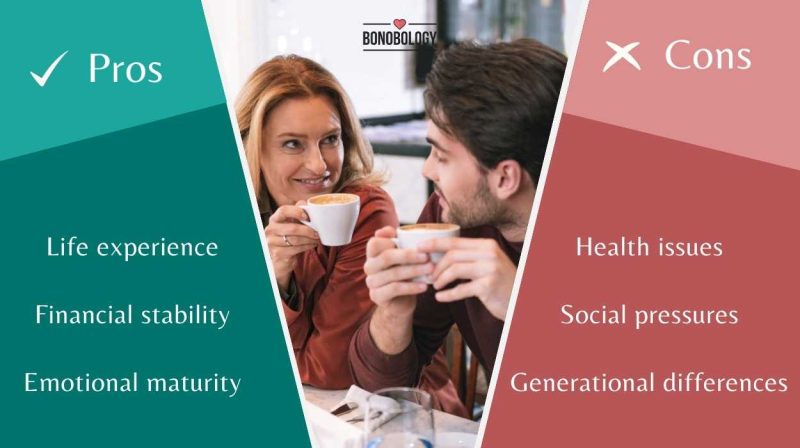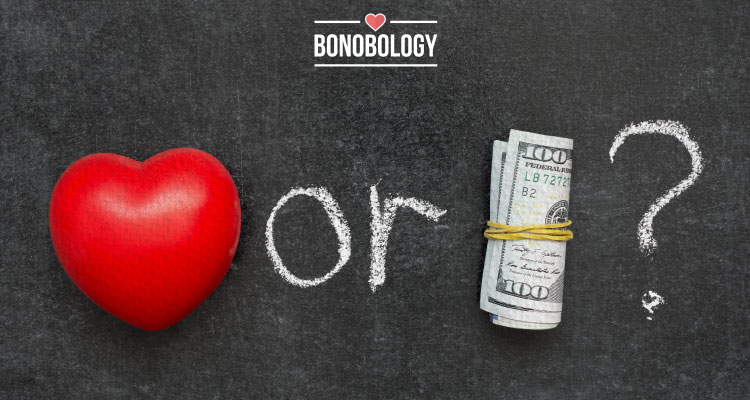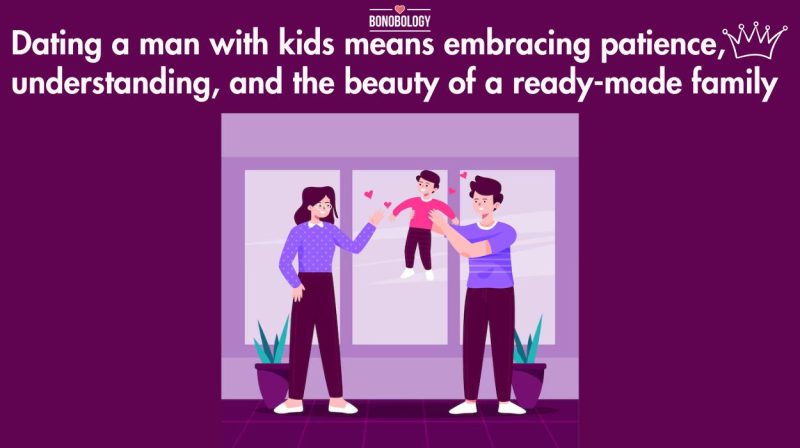Transactional relationships are real, though the concept may sound made-up. In fact, this concept has attracted a lot of interest since the time Stephanie Winston Wolkoff, friend and advisor of former first lady of the US, Melania Trump, revealed some shocking details about Melania and Donald Trump’s relationship. In her explosive interview with the BBC, she called their marriage a “deal.” So, is love transactional these days? How do people stay in such transactional connections? Do such marriages work? Do modern relationships make you think if it’s transactional love vs unconditional love?
According to a study on transactional approaches between marital couples, it was found that in such relationships, high levels of depressive symptoms were identified. This contributed to a dramatic decrease in their marital satisfaction.
Since this is an obscure and complicated topic, we reached out to psychologist Shazia Saleem (Masters in Psychology), who specializes in separation and divorce counseling, to understand more about the nature of such relationships and their impact on the people involved.
What Is A Transactional Relationship?
Table of Contents
The transactional relationship definition is quite simple. It entails a clear agenda of ‘people-as-means,’ meaning it involves assigning duties in the relationship to meet certain goals. Shazia says, “There is no denying that this kind of relationship runs more on a give-and-take policy rather than compromise, love, and vulnerability.”
The concept is in stark contrast to the age-old definition of unadulterated love that is based on attraction, passion, empathy, compatibility, and appreciation. Let’s take a closer look and find out what a transactional relationship entails:
- Transactional love is based on the theory of ‘you scratch my back and I scratch yours’. Just like a business deal, a transactional relationship has an arrangement that serves both partners. These equations may look like: “I’ll provide for you and you make me look good in social settings,” “We get married and combine our assets, saving the legalities and scrutiny,” and “Our marriage is a cover for our closeted sexualities.”
- In such relationships, there will be clear responsibilities and rewards for both partners. Arranged marriages, which are prevalent in many conservative cultures, are perhaps one of the oldest and most socially approved examples of transactional relationships.
- Such relationships are practical and convenient for the partners. But if the partners fail to strike a balance, it can take a toll on their mental health
- Transactional relationship psychology can also be closely associated with situations where love is conditional, where you show your partner love only when they act according to your whims… Unlike romantic connections built on the foundation of love and respect, “what’s in it for me” becomes the basis of quid pro quo relationships
Related Reading: Conditional Love In A Relationship: What Does It Mean? Signs And Examples
10 Characteristics Of Transactional Relationships
Transactional connections come in all shapes and sizes and can be described as pure quid pro quo connections. Whether the cons of such an arrangement outweigh the pros depends on the unique circumstances and the outlook of the people involved. Some typical characteristics of such relationships are:
1. Focus on benefits
Because of the quid pro quo arrangement, there is always an increased focus on who brings what to the table. In fact, a transactional connection is just another word for giving and expecting something in return. You never give too much in such relationships.
2. Expectations from both sides
Unlike non-transactional relationships, where expectations can ruin the foundation of love, in transactional connections, expectations serve as the very foundation of the bond. Both transactional partners expect certain things from each other. Since these expectations in relationships are agreed upon, the chances of disagreements and conflicts are minimal.
3. More getting than giving
In a healthy relationship based on love and intimacy, partners don’t keep scores. The focus of any transactional connection, however, is definitely on getting returns on what one has invested. Transactional relationship psychology is all about receiving. Both partners do their bit to make the relationship work only as long as they continue to get what they were promised.
Related Reading: Arguments In A Relationship – Types, Frequency, And How To Handle Them
4. Prenuptial agreements are likely
A prenuptial agreement specifies the terms and conditions of the marriage and what happens if either partner does not honor it. In cases of acrimonious divorces, a prenup becomes all the more important. In such cases, marriage is sealed not by wedding vows but by a legal document outlining who stands to gain what.
5. It can be healthy
“A transactional relationship can be healthy if both partners uphold their end of the bargain with integrity and honesty. If they are ready to take responsibility for their words and actions and choose to be equally responsible for whatever circumstances or situations they are in, there’s no reason why they can’t thrive.
“At the end of the day, it is a reciprocal kind of a relationship and comes with a lot of expectations from each other,” says Shazia, talking about how a transactional romantic bond may just bear fruit.
6. Little or no emotions, all convenience
A transactional bond isn’t based on emotions. Laughter, teasing, making memories – all of this takes a backseat. Such connections are based on convenience. For instance, people in such relationships stick together for practical reasons, such as:
- Raising kids after the death of a former partner
- Sharing living costs
- Family expectations or preferences
- Religious obligations
- Moving to another country or city
7. Different goals
In such relationships, it is common for the partners to have different goals. And more than couple goals, the focus is on individual goals. For instance, a friend of mine, Cynthia, got married to get easy access to her partner’s country. She started to live apart from her husband once she reached that country. In fact, she joined an institute there to get a degree, while her husband focused on his business. This can actually be a good thing and can support personal growth, if both partners are fine with it.
Related Reading: 25 Most Common Relationship Problems
8. Partners define success differently
Just like in business transactions, in a transactional connection too, success is measured by expectations and delivery. So, in case those expectations aren’t met, the relationship too suffers.
For instance, a woman who marries a man for his promising career prospects and the hope for a better house, a new car, or annual international vacations, may consider leaving him if he is fired from his job or is diagnosed with a terminal illness that may deplete their finances. On the other hand, relationships that thrive on love mostly have partners adjusting to uncertainties or empathizing with each other. In loving relationships, partners also stick together in sickness and pain.
9. Roles are predefined
In such relationships, each partner has a designated role. Some examples are:
- The husband is the breadwinner, while the wife takes care of the kids
- The wife earns for the family, while the husband takes care of the household work
Partners keep scores of how well the other is performing the role. And trouble brews if there’s any lapse. Some examples of keeping score in a relationship are:
- “I’ve taken the garbage out today, so you will do it tomorrow.”
- “I walked the dog last week, so you will do it this week.”
- “I’ve invested my savings for the house, so you will get the furniture and appliances.”
10. It feels like a chore
Such relationships have unwritten deadlines for the expectations to be met. And a partner may feel drained when they don’t meet up to those expectations. For instance, a husband may be made to feel incompetent if he doesn’t take his wife out for pricey vacations every year. Likewise, a wife may be made to feel bad if she forgets about her kid’s school project. Since partners tie each other to tasks, there’s usually little or no romance, fun, or laughter.
Related Reading: How Money Issues Can Ruin Your Relationship
5 Advantages Of Transactional Relationships
The characteristics of transactional connections may seem to go against the idea of romance. But come to think of it, every relationship is like a transaction with pre-set relationship expectations and both partners bringing their strengths and weaknesses to the table. Also, such relationships aren’t necessarily bereft of love, nor does every aspect have to be put down on paper. If you are wondering whether or not to have a relationship based on the give-and-take policy, here are some advantages to take note of:
1. Security
As in a business partnership, in a transactional relationship too, both partners ensure that there is no imbalance in their equation. Similarly, there is equal reciprocation in a relationship such as this, when it comes to needs. So, there is security and balance in the marriage or relationship. Thus, some people feel safe in such relationships.
In traditional relationships, love is the binding force. However, if this love isn’t supported by respect for one another, transparency, mutual support, and loyalty, the dynamics can get skewed. As a result, one partner may completely ignore the needs, desires, and wants of the other. In transactional bonds, both partners make sure they live up to their roles.
2. Greater equality
“The main advantages of such relationships are equality, independence in the relationship, and the fact that there’s no blame game. There’s often clarity and openness, as it comes with a pre-determined mindset and expectations of what each partner has to do.

“The give-and-take policy is clearly established, and each partner knows what they have to do to be able to reap the benefits. As long as both partners have talked about what they expect and how they expect to get it, there usually isn’t any confusion,” says Shazia. Such relationships will often not consist of one-sided selfish exploitation. Both partners know their worth and are willing to negotiate and reach a middle ground. Remember, there’s no one-sided transactional relationship.
3. Great legal safety net
In the unfortunate event of a divorce, transactional marriages have far better outcomes for both partners because you are legally more secure. It might sound unromantic, but separations often get nasty when one partner feels slighted and there is no real way to gauge who stands to lose more. Even if you go through a trial separation and think you’re prepared for a divorce, the legal battle can be all-consuming and draining.
Speaking on the benefits of prenups, lawyer Tahini Bhushan previously told Bonobology , “In the unfortunate event of a divorce, the presence of a prenup takes the burden off the court. Couples don’t have to undergo a lot of litigation where the parties involved are dragging each other down and trying to bleed each other dry. There’s a better chance the whole process becomes a lot easier.
Related Reading: How To Build An Interdependent Relationship?
4. Honesty
Honesty is what holds such relationships together. Since both partners know from the very beginning that love isn’t a priority and that both are in the relationship to get something out of it, there’s less chance of a partner blaming the other for not being honest later. There’s also no question of being used in a relationship such as this.
5. Clear boundaries
A great advantage of transactional behavior is that there are boundaries. Since such relationships set clear expectations, their boundaries are also rigid. So, if the husband is expected to make money and provide a life of luxury to his wife, he might set a boundary when it comes to him being available for her. And the best part is, people in such relationships usually don’t feel bad about such boundaries, as such bonds are all about give and take in a relationship.
Related Reading: The 7 Types Of Boundaries In Relationships For A Stronger Bond
5 Disadvantages Of Transactional Relationships
“Everything comes with its share of disadvantages and advantages. As with everything else, transactional connections are far from perfect,” says Shazia. Aside from the fact that such relationships seem to go against the very tenet of relationships based on romance and love, here are some other disadvantages of such connections:
1. It’s a dull existence
Couples often stay in unhappy marriages because they have too much to lose when they split. So, there could be shared financial interests, the fear of losing face in society, or inconvenience for children. But they may even stop making an effort to repair the cracks in their relationship, resulting in widening of the existing gap. Plus, transactional sex in marriage can be equally boring.
Such couples end up becoming roommates who perhaps tolerate each other rather than treat each other as loving partners. The marriage then becomes transactional so that they can live without having to fight about the chores and daily duties. But this sort of a connection is too dull and monotonous. Besides, you can’t ask your partner to do something as simple as being at a party or accompanying you to a family function, if that’s not part of the transaction.

2. Partners may be inflexible
In happy marriages, couples find a way to overcome their differences. They also figure out a way to share tasks and feel good about their partner. In such relationships, each partner might feel less obliged to be flexible or accommodating.
“Such relationships often turn out to be extremely unethical, and partners may end up exploiting each other. Their expectations may become unrealistic and they can become extremely selfish. They may focus more on their personal gain rather than what’s good for the relationship, always thinking, “Who’s getting the better end of the deal?”,” says Shazia.
3. It may not be good for the children
Children deserve to grow up in a loving and nurturing environment. And they learn by observing their parents. In non-loving transactional connections, where you just barely tolerate your spouse, you affirm to your children that it is okay to live a life where relationships are cold and dry.
Besides, when children grow up in loveless marriages, they may also have issues relating to romance and love later in life. They may have false ideals too. They may not learn the other important aspects of a relationship, sacrifices, emotional investment, adjustment, and trust. Thus, instead of raising them to be adults who look at forming healthy, warm, and trustworthy relationships, you may turn them into people who are tempted to create other transactional connections.
If transactional relationships are about sharing in an equal manner, then this principle needs to be applied to both responsibilities and joys. Learn to share problems too and look for solutions together. This is the only way to find true happiness in transactional love. Shared responsibilities are a hallmark of transactional relationships but don’t hold your partner to ransom if they fail once or twice.
Related Reading: 11 Signs You Are In A Codependent Marriage
4. Partners may end up competing with each other
“If you look at the examples of transactional relationships, you’ll find that romantic partners can often compete with each other about what they’re getting out of it. They tend to forget about the essence of being in a relationship, the essence of being nurturing and loving toward each other. They’re always in a cut-throat competition with each other.
“I’m giving so much for this relationship, what am I getting in return?” becomes the driving force behind the way they conduct themselves in the relationship,” says Shazia. Since a transactional relationship is largely driven by personal gain, there’s always the risk that one person may end up feeling jealous if they think the other is getting a better deal. That doesn’t sound like unconditional love, does it?
5. It may cause negative emotions
As humans, we all need love and a loving home. No amount of money can perhaps replace the warmth of a hug. Transactional connections, on the other hand, focus on material goals. Yes, happiness is relative, but a transactional family is more likely to create negative emotions, such as stress, anxiety, and feelings of inadequacy, if your material goals aren’t achieved. There may be resentment, arguments, and clashes too, since love, kindness, and compromises aren’t a part of the deal.
| Advantages of transactional relationships | Disadvantages of transactional relationships |
| Balance and security | Dull existence |
| Equality | Inflexible partners |
| Legal safety | Not good for raising children |
| Honesty | Partners may become competitors |
| Clear boundaries | Negative emotions |
How Can You Make Transactional Romantic Relationships Work – 5 Tips
Even if the love has vanished from your marriage and all that is left is a relationship deal, you can still make it work in your best interest. The ultimate aim of any couple is to build a happy life together and there is no need to compromise on that.
“Anything in moderation will work wonders for a relationship. Even in a transactional relationship, if both the partners think of each other and if they share a commitment to improving their relationship, it can definitely work out for their betterment,” says Shazia. These 5 tips will definitely help you make such relationships work:
1. Have fewer expectations
“A transactional bond can work out if both partners maintain healthy boundaries and have fewer expectations from each other. They must focus on themselves and think about how they can become better partners and improve their relationship. Just because they’ve entered into a sort of ‘profit and gain dynamic’ doesn’t mean they shouldn’t think of other things that can improve their relationship,” says Shazia.
The first step to make a transactional relationship work is to have clarity about what you want and what you don’t and manage the expectations realistically. Enter the relationship with one goal – to give whatever you can and to the extent you can, and receive what is meant for you. Anything else is a bonus.
2. Feel protected
By nature, transactional romantic relationships create a safety net for you. Once you remove the elements of insecurity from your relationship, the increased sense of security can help you be more authentic and real. Be it a transactional or non-transactional relationship, it can succeed only when you learn to be more giving and authentic.
Revisit the foundations of your relationship, stop treating it like a mere bread-and-butter issue and rediscover common goals and interests. You can make a transactional connection work if your bond isn’t solely governed by the terms of the agreement that brought you together as a couple.
Related Reading: Are You A Toxic Couple? Take This Test To Find Out
3. Stop keeping count of who does what
Whatever the ‘arrangement’ of your relationship, you need to recognize each other’s individual needs and desires. Try and fulfill these needs without compromising your own. To achieve this, do not obsess over who is doing what and who is getting what. Every relationship is about give-and-take, but once you are a couple, treat each other like a unit.
Learn to give in a little without letting your partner take advantage of your benevolence. Don’t let this transactional psychology get in the way of finding true love and connection with your partner. Of course, you have every right to protect your interests. But learn to look at the bigger picture when it comes to protecting yourself. Don’t let the petty issues get between you two.
4. Share responsibilities and liabilities
If such relationships are about sharing in an equal manner, then this principle needs to be applied to both responsibilities and joys. Learn to share problems too and look for solutions together. This is the only way to find true happiness in transactional love. Shared responsibilities are a hallmark of such relationships. But don’t hold your partner to ransom if they fail once or twice. Ask important questions, such as how they plan to handle an unexpected job loss or illness.
5. Be careful of financial matters
In both, transactional and non-transactional relationships, money can be a huge issue. Setting the right financial expectations in a relationship is important. Handle money matters carefully and prioritize financial planning right from the beginning. In transactional relationships, mutual finances are usually discussed beforehand, yet they have the potential to cause rifts.
Learn to let go of small challenges to avoid financial stress. Try and turn your relationship into a true partnership instead of reducing it to a mental tally of how much your partner is investing for you each time and assessing if you are getting a fair deal.
Related Reading: 9 Consequences Of Staying In An Unhappy Marriage
Why You Shouldn’t Settle For A Transactional Relationship
Living with someone who has a transactional personality can be difficult. The entire relationship can turn toxic because of the score-keeping and tit-for-tat attitude. The expectations can soon weigh you down. If you want to have a normal relationship with your partner or if you have developed genuine feelings for them, it’s time to talk to them about revisiting the terms of your agreement or to end the transactional bit. Here are some things you can do to better your situation after agreeing to end the transactional part of the relationship:
- Put an end to expectations in relationships
- Don’t look at this relationship as a competition where one person has to be the winner and the other has to lose
- Treat this relationship with care, respect, and love
- Focus on shared values
- Do chores together, spend time together, and go on romantic date nights
- Be vulnerable and let your walls down
- Be more understanding and empathizing
Key Pointers
- Transactional connections and marriages are like business deals. They work on expectations and equal investment. The transactional relationship definition does not include love, flexibility, and sacrifices
- Prenuptial agreements are common in transactional marriages. Some other characteristics of transactional relationships are focus on benefits, pre-defined roles, and equal expectations
- The advantages of a transactional relationship include security, legal safety, and honesty
- The disadvantages of such relationships include their dullness, their inflexibility, and the fact that they are unsuitable for raising children
- In a way, all relationships are transactional, so there may be no definite word to describe the opposite of a transactional relationship. And when handled the right way, a transactional relationship may last and make you happy in the long run
A relationship is essentially about a spiritual and emotional connection. Don’t let expectations, lack of intimacy, or communication issues get in the way of it. If a transactional relationship is what brings you happiness, then go for it. But if you are stuck with a partner who has a transactional personality while you are the kind of person who craves intimacy, passion, and vulnerability, it’s best to talk to them. Don’t sink into philosophical thoughts, asking yourself, “Is love transactional?” Tell them you want a relationship that isn’t so mechanical.
This article was has been updated in August 2023
FAQs
It means the person is quite calculative and practical. A transactional person is someone who will act in a situation only if there is some gain for him or her. They apply this principle to all relationships, including the one with their romantic partner.
All relationships are transactional in some way or the other. There is an expectation and there is a reciprocity of that expectation. So, even love is conditional. Be it in husband–wife, siblings, friends, or parent–child relationships, there are always expectations at play. So, it’s not a question of transactional love vs unconditional love, and there may be no opposite of transactional relationship
A transactional marriage is more like an arranged marriage where compatibility, chemistry, and love take a backseat. In such marriages, couples or family members see how well-matched the partners are in terms of economic and societal status and what each partner brings into the marriage.
Reducing expectations, learning to give as much as you are willing to receive, not keeping count of who is doing what are some ways you can stop being too transactional.
8 Signs Your Boyfriend Is In The Relationship Only For The Money
Your contribution does not constitute a charitable donation. It will allow Bonobology to continue bringing you new and up-to-date information in our pursuit of helping anyone in the world to learn how to do anything.






















